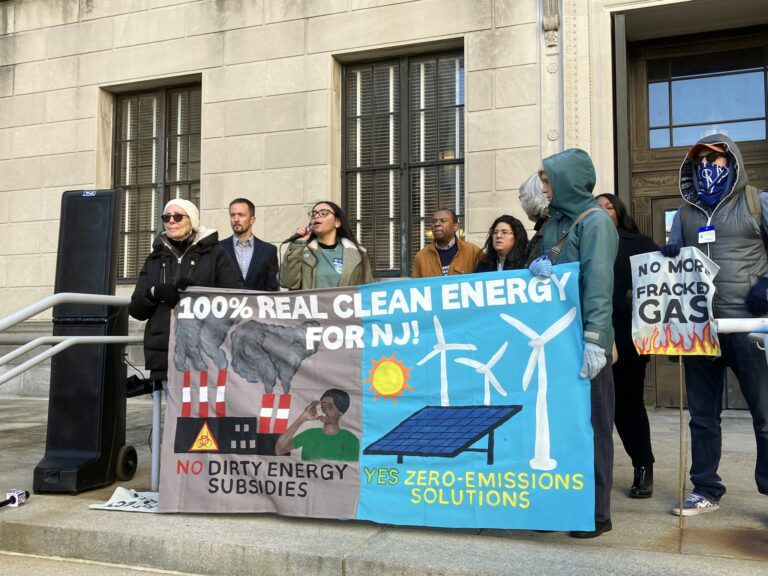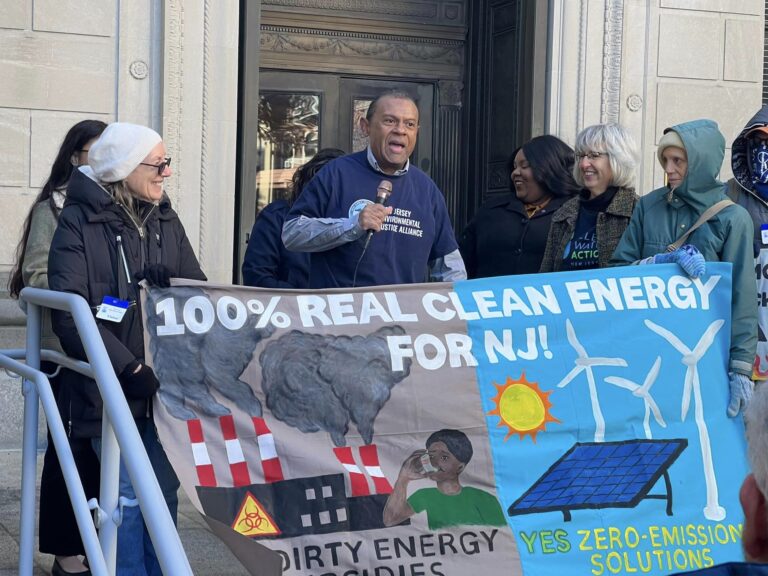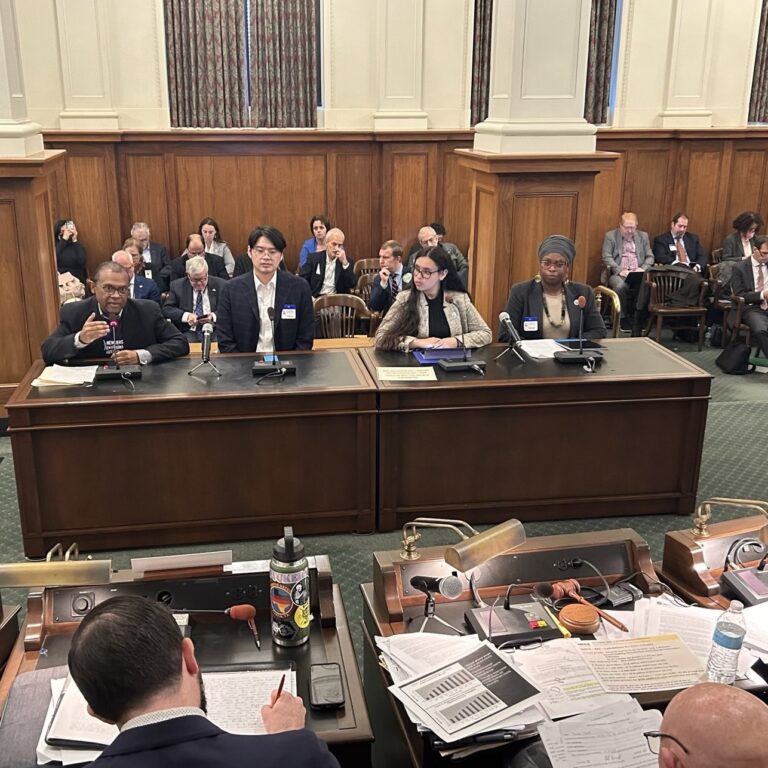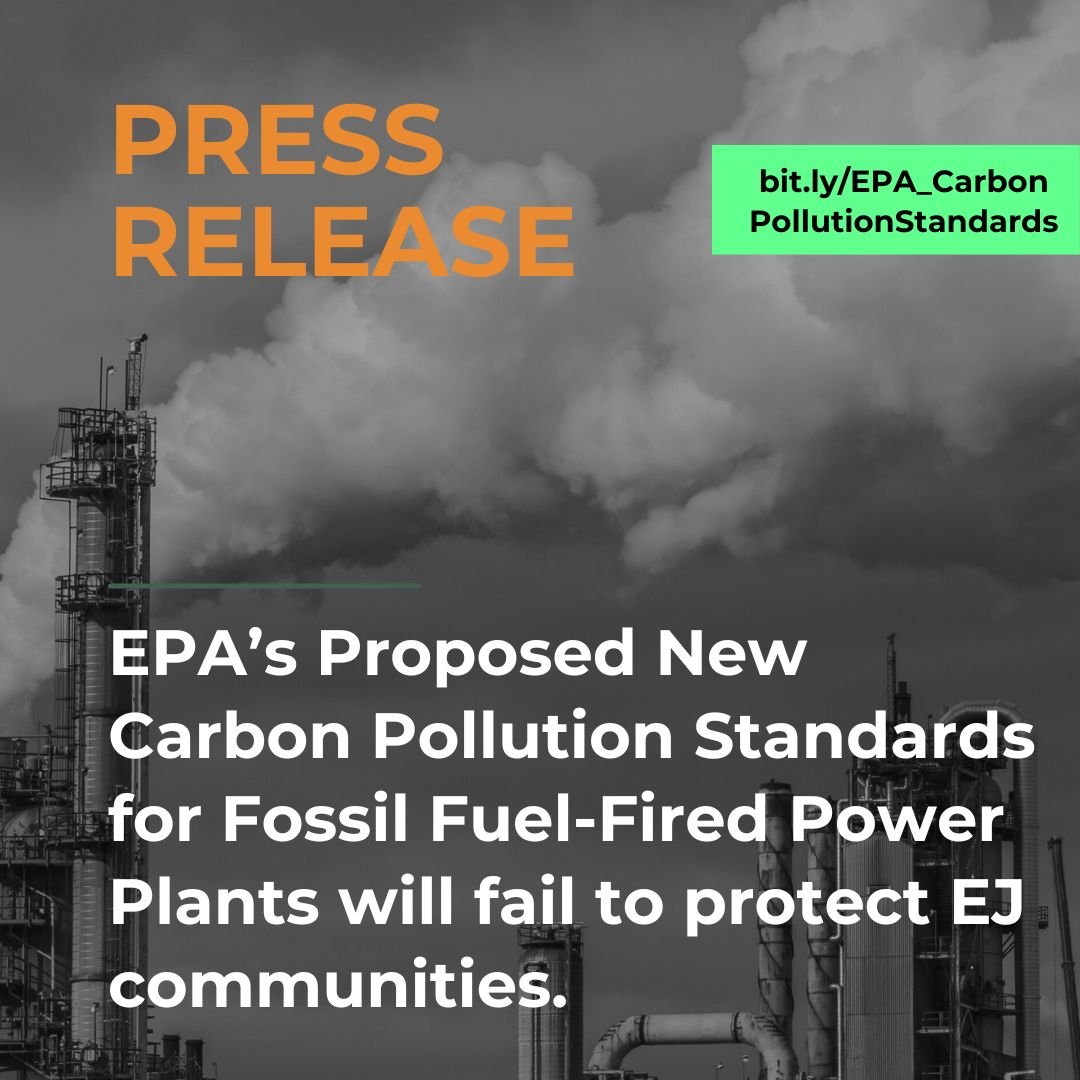Comments on: New Jersey Department of Environmental Protection’s Strategic Climate Action Plan
Submitted by the New Jersey Environmental Justice Alliance to the New Jersey Department of Environmental Protection
October 19, 2023
Introduction
The New Jersey Environmental Justice Alliance (NJEJA) is a statewide organization mobilizing other environmental justice (EJ) organizations and individuals in order to increase the quality of life and upward mobility opportunities for EJ communities (low-income communities and communities Of Color), many of whom experience additional burdens resulting from histories of systemic racism. Our work covers a wide range of areas including plastics and incineration, air pollution reduction and cumulative impacts, ports and transportation, and clean energy policy. The principles and values of environmental justice practices are at the center of all we do, and we believe that the community’s vision of improvement will always be the most effective and important part of strategic development.
As such, we respectfully submit these comments today in an effort to support the New Jersey Department of Environmental Protection (DEP) in their “continuing commitment to furthering the promise of environmental justice through actions that advance climate justice” (Section 2). Our range of work, state-wide reach, and diversity of membership gives us a unique perspective on environmental protection and allows us to bring the concerns of overburdened, environmental justice communities to the forefront of the conversation.
Air Pollution, Co-Pollutants and Emissions Reduction
When identifying and implementing the best practices for addressing air pollution in the state of New Jersey, the DEP must ensure that all efforts to lower greenhouse gas (GHG) emissions work equally as hard to lower co-pollutants emissions. As the Strategic Climate Action Plan (the Plan)
draft clearly states:
“Climate impacts are likely to have even greater effects in communities already overburdened by pollution. That includes threats from co-pollutants, emitted alongside greenhouse gases, which have localized health effects.”
Section 2
The harmful effects of co-pollutants disproportionately impact already overburdened EJ communities. These aforementioned localized health risks, such as the effects of Particulate Matter (PM) 2.5, include premature death, cardiovascular disease, lung cancer, and pulmonary disease. Additionally, it must be acknowledged that fine PM has no lower threshold for health benefits. Driving down concentrations of fine PM and other co-pollutants in tandem with GHG emissions has immediate relevancy and benefit to EJ communities.
To this end, NJEJA is concerned both about the lack of specific accountability mechanisms and discussion of co-pollutants throughout the report. Within the report, reduction in co-pollutants is seen as a secondary benefit brought on by a reduction in GHG emissions. It must be recognized that a climate change mitigation policy that does not address co-pollutants directly, but instead treats them as secondary benefits is an ineffective policy. This can be seen in Section 4.2.6.1 when the Plan states that “anticipated outcomes could include reduced co-pollutant emissions.” Similarly, Section 7.2.2 states that “reducing greenhouse gas emissions will also have co-benefits of reducing co-pollutants.”
By not addressing co-pollutants in air pollution policy directly, we risk failing to improve air quality even if we are successful in our GHG policies. Climate change mitigation policy must address co-pollutants in order to ensure that we protect overburdened EJ communities. The DEP has the opportunity to drive down concentrations of co-pollutants in tandem with GHG emissions while advancing the States’ clean energy and climate-related priorities; this can only be achieved by treating greenhouse gases and co-pollutants as equally important and as equally devastating to our communities’ health, safety, and stability. To this end, we recommend that any policies which target greenhouse gas emissions include mechanisms to monitor and reduce co-pollutants as well. Such examples could include: factoring in co-pollutants to the Social Cost of Carbon (SCC) calculations (Section 4.2.2); including co-pollutants in the proposed annual Greenhouse Gas (GHG) Inventory Report (Section 4.2.2); developing a co-pollutant inventory for Department facilities as supplemental to the development of its greenhouse gas inventory (Section 4.2.3.1); increasing transparency and specificity to address co-pollutants while examining “avenues to reduce pollution in overburdened communities” (Section 7.1).
Hydrogen Hubs
Throughout the Plan, the DEP highlights their intention to support the development of a regional hydrogen hub (Section 4.2.5 and Section 4.2.6.1). We are deeply concerned that these plans will be advanced without consideration of community input, potential risks, and sufficient conversation with EJ communities who will bear the brunt of negative consequences from these facilities. The only way to produce hydrogen without worsening air pollution or further damaging the climate is to create “green hydrogen” which – as of April 2021 – represents less than 1% of the hydrogen produced. Hydrogen Hubs cannot be treated as the singular solution and any exploration of using hydrogen should be treated with extreme caution. EJ communities must be engaged and given accurate information regarding the impacts of these hubs to their communities. Furthermore, the DEP must sufficiently address the public and environmental risks of the hydrogen hubs program to New Jersey communities with robust discussion, full transparency, and meaningful engagement.
Lastly, the DEP should be clear in its understanding and interpretation of clean energy specifically as it relates to the development of renewable energy powered and/or hydrogen-powered fuel cells. The DEP must define “clean firm” and be precise about both the benefits and risks of these technologies. Clean technology cannot become a greenwashed term, and must represent truly clean technologies. Language regarding clean energy and clean technologies must ensure that environmental communities see real, tangible protection and that just transition practices are employed in every proposal and plan.
Sustainable Waste Management
The issue of sustainable waste management is a unique challenge in that it requires both highly specific community engagement and localized plans as well as a broad state-wide plan to handle the state’s waste. NJEJA firmly supports a prioritization of EPR as an effective tool to drastically reduce the amount of plastic waste, particularly plastic packaging waste, from entering the waste stream. When we reduce plastic production we send less waste to incinerators, which alleviates air pollution and other toxic-exposure health concerns in overburdened communities. We urge the DEP to continue developing EPR policies and infrastructure, in order to address waste issues in a manner that reduces the pressure on the individual, and instead handles these waste challenges at an infrastructural level targeting plastic reduction policies at the source of their production. Additionally, the DEP must be clear about their definitions of recycling and their development of facilities to handle sustainable waste management. First, the definition of recycling should prohibit chemical recycling, plastic to fuel, advanced recycling, pyrolysis, solvolysis, gasification, or any synonymous technology from being included as viable recycling techniques. These technologies have not been proven to be credible or safe techniques and expose communities, particularly already overburdened communities, to air pollutants and risk of fires, gas and chemical leaks, and costly clean-ups. Secondly, we recommend that the DEP define and explain their intention for similar terms including food waste recycling facilities and organic waste recycling.
Finally, the DEP must ensure that all evaluation of emerging technologies, educational programming, engagement opportunities, and strategic planning includes communities who will be primarily affected by these facilities. These communities must be prioritized in the stakeholder engagement process in order to address their concerns, ensure safety and stability in the development process, and sufficiently address environmental risks.
Climate Equity: Stakeholder Engagement and Community Input
Finally, climate equity work must include and center EJ communities. As the Plan acknowledges:
“Low-income communities and communities of color in New Jersey – and across the United States – are burdened with disproportionately high pollution, increased flood risk, and more intense heat waves as compared to wealthy, White communities due to decades of redlining and community disinvestment.”
Section 7
These communities have consistently been forced to navigate climate change dangers, environmental degradation, adverse health risks due to worsening air pollution, and other community risks. In order to ensure that past wrongs are not replicated in current plans, EJ communities must be included and recognized as leaders in the strategic planning process. The DEP must underscore the importance of community engagement in every action, plan, and regulatory development. We are supportive of the opportunities for stakeholder engagement listed within the Plan, and we encourage the DEP to ensure that these engagements are inclusive of all stakeholders including community-based and local non-profit organizations. Prioritizing direct engagement with communities not only builds trust between governmental bodies and the local communities, but often leads to increased support for projects by recognizing the value and knowledge of communities in leading the planning and development processes. This support serves to expedite the planning process, ensure that communities are enthusiastic about plans to build climate resilience across New Jersey, and create a cohesive, cross-sector coalition dedicated to helping the State reach its climate goals. All areas of the Plan would benefit from increasing community engagement, but areas that address the layout and specific conditions of a community can see increased benefit from direct community conversation. Such areas include the DEP’s work on sustainable waste management (Section 9.2.1), resilience funding (Section 5.2.2.1 and Section 5.2.2.2), and the Community Solar Energy Program (Section 4.2.5.1). Furthermore, the DEP should increase transparency and specificity regarding tools, tactics, and strategies to support overburdened communities; there must be prioritized, direct, and protective actions to reduce risk and strengthen the overall health and wellbeing of the community.
Conclusion
When the communities across the state that are most consistently facing climate risk are protected, we will see a trickle-up effect where every individual is protected. NJEJA reaffirms every community’s inherent right to a healthy, safe community. These comments have been submitted to address our concerns regarding air pollution, hydrogen technologies, truly clean energy, sustainable waste management, and robust stakeholder engagement. We offer our support in building a cleaner, more resilient New Jersey and are supportive of ongoing conversation with the NJDEP concerning our thoughts in these comments.
Prepared by:
Brooke Helmick, M.A.
Law and Policy Manager, New Jersey Environmental Justice Alliance






 WASHINGTON (August 8, 2023) –The Tishman Environment and Design Center at The New School, the Center for the Urban Environment of the
WASHINGTON (August 8, 2023) –The Tishman Environment and Design Center at The New School, the Center for the Urban Environment of the